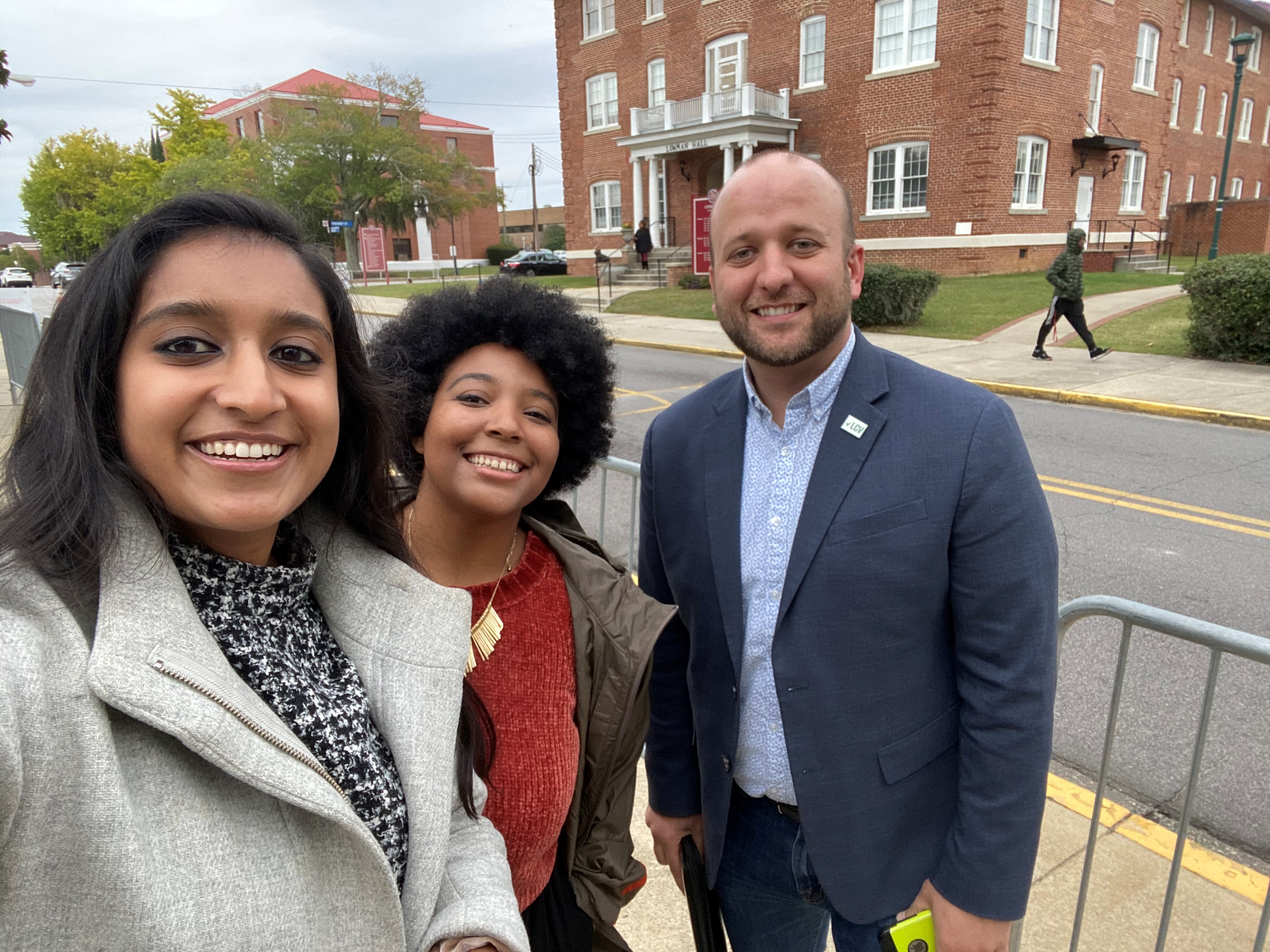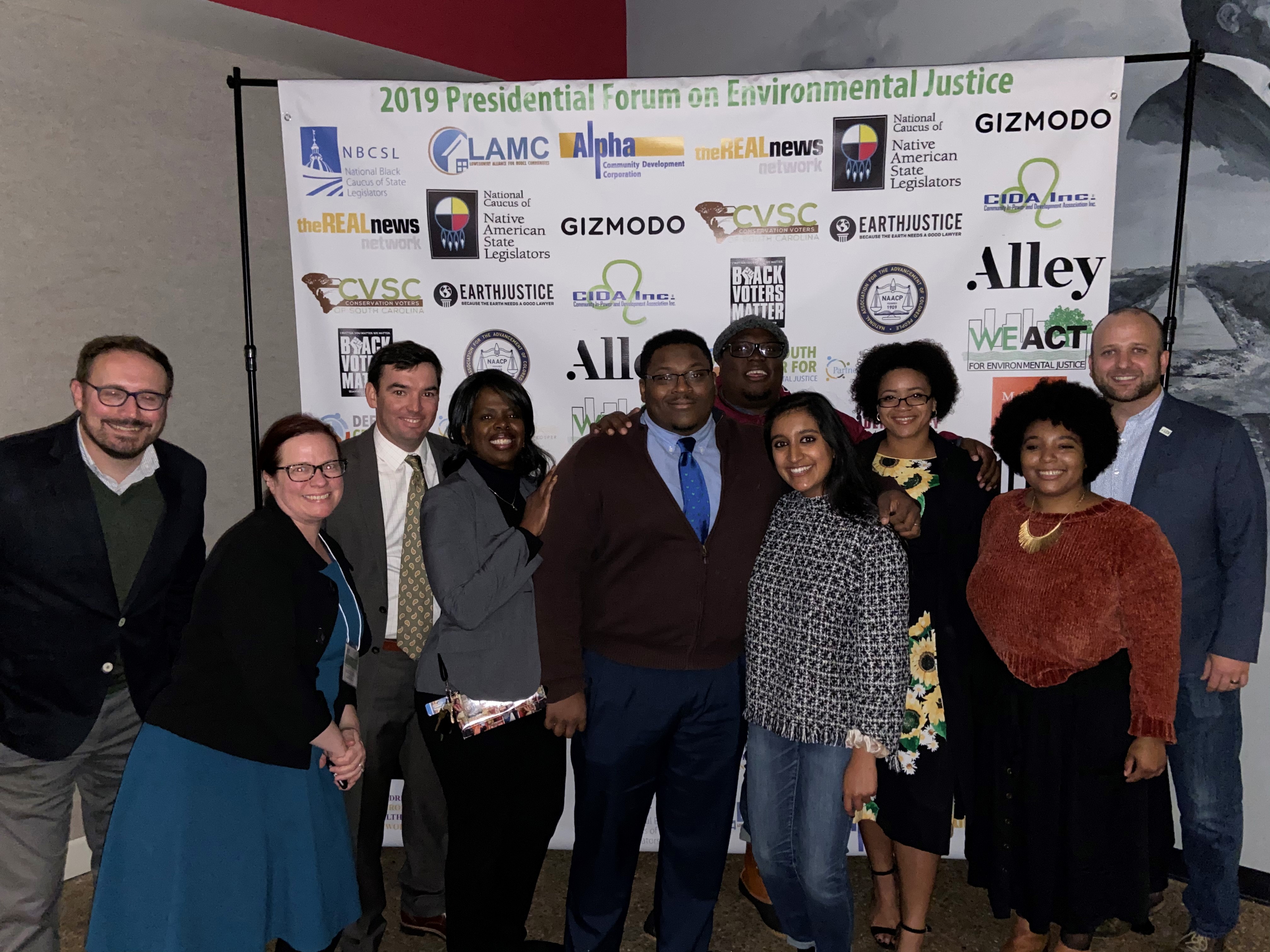A few weeks ago, I had the honor of joining staff from LCV and our partners at Conservation Voters of South Carolina to attend the first-ever presidential forum focused on environmental justice. As a young woman of color, it was a powerful experience to be in a room full of environmental justice leaders and climate activists of color for this event. Presidential candidates shared their plans for how they would integrate racial justice and equity into solving the climate crisis, protecting safe drinking water, and cleaning up toxic pollution.

At this forum, six candidates – Tom Steyer, Elizabeth Warren, Cory Booker, John Delaney, Joe Sestak, and Marianne Williamson – participated in the discussions about how they would center the needs, leadership, and perspectives of communities of color in protecting our health and environment. The event, hosted at South Carolina State University — a historically Black university — by the National Black Caucus of State Legislators along with several environmental and racial justice organizations and media partners, was moderated by Mustafa Santiago Ali and Amy Goodman.
For far too long, colonialism, systemic racism, and disenfranchisement have forced Indigenous communities and communities of color to bear the brunt of the impacts of toxic pollution and the climate crisis. In order to move forward, we believe that our fight to solve the climate crisis must be rooted in racial and economic justice to ensure that the needs of the communities most impacted are at the center of our solutions.
That’s why LCV is pushing the Democratic candidates for president to pursue a just, equitable economic transition that supports good-paying, family-sustaining new jobs in clean energy; prioritize investing in communities that are historically overburdened by pollution and most vulnerable to climate impacts; and guarantee frontline communities have a central role in crafting the policies that impact their communities.

At the environmental justice forum, we heard numerous candidates prioritize these principals of racial justice and equity. Here are a few highlights that candidates shared at the forum:
- Tom Steyer: Steyer kicked off the forum by recommitting to making climate his top priority as president, and he noted that we cannot address climate change or pollution without addressing systemic racism. He also voiced support for environmental reparations to ensure that communities burdened by toxic emissions receive retribution and compensation. Finally, Steyer committed to spending a third of the resources outlined in his climate plan in communities most affected by pollution.
- Elizabeth Warren: Warren shared that she would create an environmental justice council in her first 100 days to bring local solutions to the White House. She also reiterated her plans for a moratorium on drilling on public lands and shores, which would protect lands that are sacred to Indigenous communities and the health of neighboring communities. Warren spoke specifically about working with Indigenous communities to ensure that they’re centered in environmental solutions going forward.
- Cory Booker: Booker started off his time by noting his ongoing efforts to meet with local communities impacted by pollution and establish the Environmental Justice Caucus in the Senate. In addition, he emphasized the need to end tax breaks for oil and coal and the need to make sure there is equality in opportunities for jobs in clean energy.
- John Delaney: Delaney emphasized the impacts of environmental harms on specific communities throughout the country and the need to ensure that those communities were included in decision making.
- Joe Sestak: Sestak focused on how his military experience influences his perspective on environmental justice and climate issues, including efforts to increase clean energy production at bases and the need for global action.
- Marianne Williamson: Williamson focused on the need to heal communities and overcome the systemic racism and inequality that pushes pollution and other problems on to communities of color and low-income communities.
As the primary continues, I can’t wait to hear from more candidates about how they’ll consider the needs of communities of color, and how they’ll center their plans to protect our environment and respond to the climate crisis on environmental justice.
And that’s exactly what LCV will continue to push for as part of our Change The Climate 2020 campaign. The 2020 election is our last best chance to change the course of the climate crisis, but we can’t solve this crisis without putting the people most impacted by pollution and climate change — especially communities of color and Indigenous communities — at the center of solutions.
